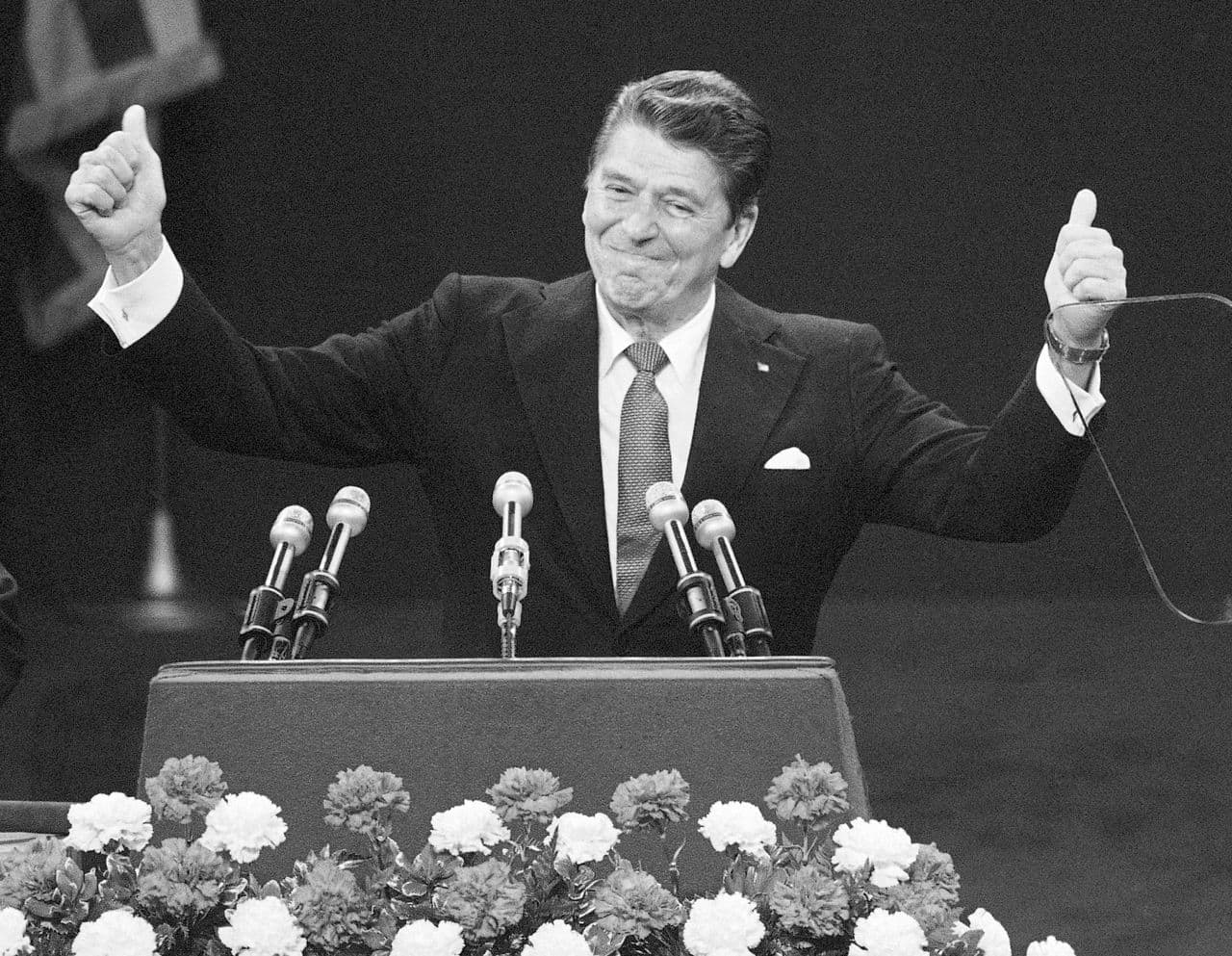Advertisement
The Iran Nuclear Deal In Historical Context, And Why It Will Be Good For America
Critics of the deal to thwart Iran’s nuclear drive raise legitimate points. Lifting sanctions that have crippled Iran’s economy will allow malevolent mullahs to funnel the resulting windfall to homicidal allies such as Hezbollah and Shiite militias in Iraq and Yemen. The administration hopes that a reprehensible regime will not cheat or, if it does, that we can catch it with its fingers in the uranium cookie jar.
Yet President Obama has persuasive answers to these concerns, which we’ll get to momentarily. Equally relevant, while we can’t prophesy the future, we can look for guidance to the past. And the past is this: The hardline right typically went ballistic, so to speak, over arms control deals, predicting grave harm to national security. And the right got that wrong, to the point that the most sainted conservative president ignored them three decades ago.
The hardline right typically went ballistic, so to speak, over arms control deals, predicting grave harm to national security. And the right got that wrong.
Ronald Reagan entered the White House with unimpeachable anti-communist credentials, which he promptly burnished by boosting defense spending, branding the Soviet Union an “evil empire,” and countering Soviet missiles by pointing Pershing IIs at Russia from West Germany, despite howls from peaceniks. His administration spotlighted Soviet cheating on arms-control agreements. Yet when he sensed a different leader in Mikhail Gorbachev, the Gipper set the diplomatic microwave on thaw, notably agreeing to the 1987 INF Treaty.
Reagan signed INF despite his Defense Department’s insistence that the Soviets routinely broke treaties (the State Department differed). On the right, an Anti-Appeasement Alliance sprang into being, one leader not mincing words: ''Unfortunately, Ronald Reagan is a very weak man with a very strong wife and a strong staff. He has become a useful idiot for Kremlin propaganda.''
It is ironic that, last year, the Obama Administration accused Vladimir Putin’s government of violating provisions of the 28-year-old pact. But it’s important to acknowledge what didn’t happen. As you may have noticed, neither the Russians nor the U.S. blew up the world. And contrary to hardliner fears, we didn’t lose the Cold War. Russia did, despite posing an existential threat to us, which Iran doesn’t.

Fast-forward to now: Critics are correct that the Iranian deal doesn’t require the Iranians to withhold funding from favored bad guys--just as the INF treaty, President Kennedy’s 1963 test ban treaty, and President Nixon’s 1972 SALT I and ABM deals didn’t stop Soviet aid to communists in Cuba and elsewhere. Nor did those treaties liberate the gulag or grant Russians the Bill of Rights. Arms control seeks to control arms, not perfect fallen humanity, and the Iran deal’s prospects on that score have persuaded Pat Buchanan, who worked for both Nixon and Reagan, to break with conservatives and back Obama.
Under the deal, Iran’s centrifuges will be cut by two thirds; its stockpile of enriched uranium will be slashed by 98 percent; and enrichment of that material will be restricted to a mere fraction of what’s needed for a bomb. If Iran tried to burst these fetters, it would need a year to fuel a bomb as opposed to just months now. Inspectors will be able to comb Iran’s nuclear facilities. Opponents grouse they could be stiff-armed for 24 days if Iran chose to cheat, but that’s insufficient time to conceal highly radioactive, bomb-grade material, as even the deal's critics admit. In short, Obama has adopted Reagan's mantra of trust-but-verify.
The suggested alternatives to the deal are non-starters. Continue the sanctions status quo? For that to be effective, we need our allies to continue participating, and they won’t.
The suggested alternatives to the deal are non-starters. Continue the sanctions status quo? For that to be effective, we need our allies to continue participating, and they won’t. That leaves military action. According to intelligence estimates, taking out Iran’s nuclear facilities would set back its nuclear program three or four years; the treaty freezes it for 10. The military option will always be available as a last resort, deal or no deal; besides, as Buchanan says, no one accuses the Iranian government of being suicidal. The mullahs know that they can’t match the combined nuclear arsenals of the U.S. and Israel, which could obliterate their nation if they actually tried to build and use a bomb.
At day’s end, those willing to risk an armed confrontation sooner rather than later misread not just Iran but our country. “After the experience of the past 12 years of the United States in the Middle East--of 4,500 Americans dead, of 31,000 severely wounded, of $2 trillion spent,” columnist Mark Shields says, “I think Americans have lost confidence in the one-size-fits-all, let’s get tough, let’s get powerful, let’s go in and kick a little tail.”
